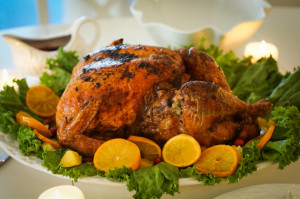- Calls to this hotline are currently being directed to Within Health, Fay or Eating Disorder Solutions
- Representatives are standing by 24/7 to help answer your questions
- All calls are confidential and HIPAA compliant
- There is no obligation or cost to call
- Eating Disorder Hope does not receive any commissions or fees dependent upon which provider you select
- Additional treatment providers are located on our directory or samhsa.gov
Seasonal Challenges … Seasonal Solutions
Contributed By: Debra M. Cooper, graduate of Arizona State University, writer for Eating Disorder Hope.
Several factors contribute to emotional challenges during the holidays. These include:
SEASONAL DEPRESSION
 It used to be referred to as the winter blues or even winter depression–that vague and ubiquitous feeling of melancholy that occurred during colder months.
It used to be referred to as the winter blues or even winter depression–that vague and ubiquitous feeling of melancholy that occurred during colder months.
Not only is this a very real malady, but there is a clinical term for it: seasonal affective disorder (SAD), also known as seasonal adjustment disorder. This is a form of depression that can manifest at specific times of the year.
SAD is season-dependent, meaning it does not occur during summer months. By and large, it is thought that changes in light may trigger the disorder. When light strikes the retina at the back of the eye, certain messages are sent to the hypothalamus.
This is the area of the brain responsible for:
- Sleep
- Appetite
- Sex drive
- Temperature
- Mood
If light decreases, these functions also lessen and gradually discontinue altogether.
Additionally, it is believed that serotonin, a neurotransmitter found in the brain, plays an important role in SAD. Research reveals that lower serotonin levels are found in the brains of those struggling with depression, especially during winter months. Therefore, those with SAD may have impairment in the part of the brain that releases and absorbs serotonin.
SEASONAL STRESS
The perception of the holiday season and the expectations surrounding it has certainly changed in modern times. One hundred years ago, it is imagined people took the individual holidays as they presented themselves.
Perhaps cooking began a few days before Thanksgiving in preparation for the day; possibly Christmas was afforded a little more advanced thought in that people would start making gifts a couple of weeks ahead. The New Year’s holiday may or may not have even been acknowledged.
There is much to be said for the expression “the good old days.” Today, Christmas blasts into the commercial marketplace before Halloween; “black Friday” now officially starts on Thursday; even New Year’s Eve is linked to an obligatory social gathering and something new to wear.
The end result is that far too many people are far too stressed. There is simply too much to accomplish in a limited amount of time.
 Decorating the house, purchasing gifts, attending or planning holiday celebrations all contribute to heightened stress.
Decorating the house, purchasing gifts, attending or planning holiday celebrations all contribute to heightened stress.
And no matter how you cut it, the vast majority of holiday pressure ends up on a woman’s plate.
This is particularly the case if children are involved.
It is the mother who will ultimately be responsible for everything from what gift is given to the teacher to how the children will occupy their time during the holiday vacation.
Although exceptions to this rule do exist, they are extremely rare.
Emotional stress often leads to fatigue, which can trigger a negative chain reaction. Fatigue compromises the immune system and often leads to illness. This can come in the form of a common cold, stomach upset, neck and back pain, chest pain and heart palpitations, or an increase in headaches.
During this pressure-filled season, women often cease to do what they need to do the most—take care of themselves. A commitment to healthy sleep, eating well and exercise often falters; even simple things such as intentionally consuming water or taking daily vitamins goes by the wayside.
SEASONAL CONSUMPTION
We know that the holiday season is inextricably associated with food. Most people recognize this to be the case and take it in stride. Perhaps a couple of pounds will be gained, but in the long run, no big deal.
However, if an individual is fighting to maintain recovery from an eating disorder, this is a very big deal. Again, the majority of those who fall into this group are female.
 If a young college student has struggled with anorexia, she may return to occasional restricting, due to the intense fear associated with such plentiful food.
If a young college student has struggled with anorexia, she may return to occasional restricting, due to the intense fear associated with such plentiful food.
A mother recovering from bulimia may fall victim to a binge and purge, the result of a relentless desire for the food and heightened stress.
Emotional eaters are especially vulnerable; this is particularly the case if they have not yet honed healthy coping skills to manage negative moods.
Historically, they used food to self-sooth; when sad, lonely, anxious or depressed, food provided comfort. The holidays can easily evoke any or all of these emotions.
At family gatherings or holiday parties, there is just so much food to deal with, especially sweet treats. Sugary foods, particularly those that contain chocolate, overwhelm the body with serotonin – the feel good hormone.
The urge to consume large amounts of food is exacerbated by two other factors. Sentimentality is one of them. A certain type of Christmas cookie may remind a woman of a beloved grandmother; the cherished memory is enhanced with every bite.
Scarcity is another factor. If a certain item is very seasonal, the rationale might be that much of this food must be consumed now, since it will not be available for another 12 months.
SEASONAL SOLUTIONS
Depression: if you routinely feel inordinately sad or gloomy during winter months, you could be suffering with SAD. Help is available, so speak to your family care physician. The answer may be as simple as altering your diet, getting a little more exercise outside, or purchasing a light box. Phototherapy has proven extremely beneficial in the elevation of mood and the reduction of SAD symptoms.
Stress: There is a common expression: “you’re not the boss of me.” Let’s spin this a little to your benefit. The marketplace, with all its hype of “must-have” products, the ridiculous notion that the amount of money spent translates into the degree of love you have for a friend or family member, and the advertisements that bombard your senses for weeks on end, have one end game: money.
 The marketplace does not know or care about you. So do not let it be the boss of you.
The marketplace does not know or care about you. So do not let it be the boss of you.
Strong, competent people are capable of making their own decisions. If you want to purchase a gift, do it; if you don’t, don’t.
Two important caveats: do not purchase items because marketing professionals have created a false need or urgency surrounding them; and importantly, do not spend money that you do not have.
This only results in unconscious stress during the holidays and very real stress when the bill comes due in the New Year.
Additionally reduce anxiety by making decisions that are right for you. If the idea of attending a party is upsetting, choose to not go. You are the boss of you, so make wise decisions.
Consumption: accept the fact that food will be a big part of what you do and where you go; try to make peace with that concept in advance. Return to what you know is right and reasonable for you: healthy exercise, enough sleep, and eating well.
Stick to your food plan—that’s why it is there. Decide in advance what holiday treats you really like, then eat them intentionally and enjoy them. Stay in touch with support groups that you are involved with and other therapy-related professionals on your team; this is no time to “go it alone.”
Every challenge has a solution. Strive to find joy, peace and happiness where you can; start now to create habits and responses that will translate into positive holiday experiences for years to come.
Community Discussion – Share your thoughts here!
Have you struggled within your recovery from disordered eating during the holidays? What tools can you share that have helped you in your journey to recovery?
About the author: Debra M. Cooper, a graduate of Arizona State University, has worked as a professional writer for 30 years. She is the author of Behind The Broken Image, a novel about families and eating disorders. Today, she writes full-time for Timberline Knolls Residential Treatment Center.
The opinions and views of our guest contributors are shared to provide a broad perspective of eating disorders. These are not necessarily the views of Eating Disorder Hope, but an effort to offer discussion of various issues by different concerned individuals.
We at Eating Disorder Hope understand that eating disorders result from a combination of environmental and genetic factors. If you or a loved one are suffering from an eating disorder, please know that there is hope for you, and seek immediate professional help.
Last Updated & Reviewed By: Jacquelyn Ekern, MS, LPC on November 17, 2015
Published on EatingDisorderHope.com

